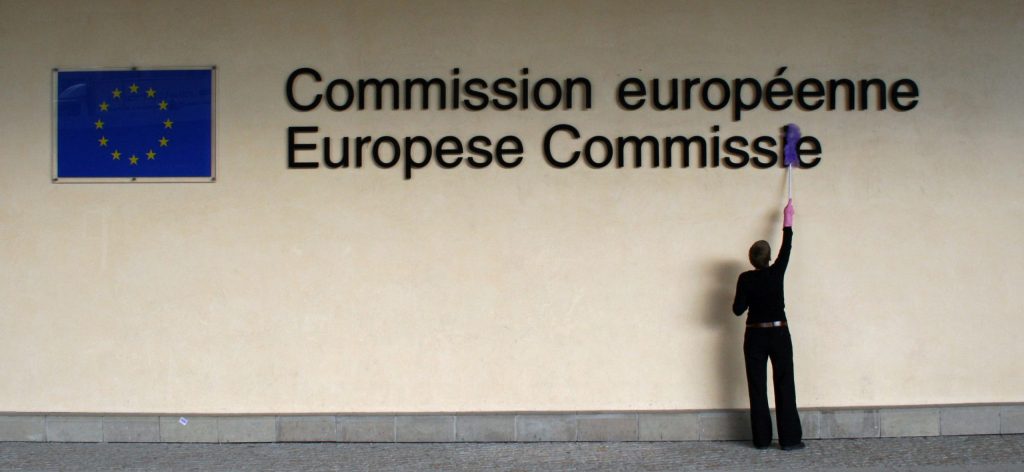Over the next months, the European Commission and Parliament will review their voluntary joint Transparency Register that entered into force June 2011. The register continues to have a large number of shortcomings, due to its voluntary nature. Hundreds of companies, consultancies and law firms involved in EU lobbying remain unregistered.
The European Parliament has spoken out on several occasions that it wants a mandatory register. The Commission however favours a voluntary register. One of the main arguments of the Commission has been that there is no legal base for a mandatory register in the EU Treaties.
A new study from Markus Krajewski, Professor in Legal Studies at Erlangen-Nürnberg University in Germany, shows that new EU Treaties provide a legal base for a mandatory lobby register. Mandatory lobby regulation can be adopted through the ordinary legislative procedures according to Professor Krajewski. Article 298 [1] of the Treaty on the Functioning of the European Union (TFEU) [2], combined with the implied powers doctrine, provide a legal basis, upon which EU regulations on matters such as lobbying can be implemented.
Paul de Clerck, coordinator of the Economic Justice Programme at Friends of the Earth Europe and steering group member of ALTER-EU said: “The voluntary Register continues to have significant loopholes: many important lobby groups are not signed up and the information provided is often not reliable. A mandatory Register can solve these problems. As a legal base now exists for this, the Commission should use the review process to begin making the necessary legislative proposal”.
In preparing its legal opinion for a resolution in favour of a mandatory register (voted in 2011), the European Parliament had already referred to Article 352 TFEU, which provides a legal basis but not the required powers for the EU organs to legislate on lobbying. The use of Article 298 [1] TFEU and the implied power doctrines allow to bypass this shortcoming.
In the transition period towards a mandatory lobby register, the study highlights practical measures that could already be adopted. For instance staff regulations and rules of procedures can be amended in order to become legally binding for both EU staff and lobbyists. Staff regulations can include provisions that will not allow meetings with unregistered individuals, while rules of procedures can incorporate requirements in order to limit meetings with EU officials, access to EU facilities, and membership in expert groups to registered lobbyists.
***
UPDATE: During the launch of the study, the Parliament stressed the importance of a mandatory register, stating the poor quality of data resulting from a voluntary system fails to reach full transparency. Companies and law firms are still not registered, and the register does not extend to the Council or other EU bodies that are also subject to lobbying activities.
The Commission agreed with the legal basis presented but was reluctant to support the idea of a mandatory register, since they consider the current register as a success. The Commission raised concerns about the difficulty of defining a lobbyist, the language of the entries, and whether obliging businesses to register will have a detrimental effect of the general business activity in Brussels. The Commission’s representative concluded that the review of the register has to occur first, with all views and suggestions taken into account, before considering the specific legal framework and the implementation of a mandatory status of the register.
***
Notes:
[1] According to article 298, all European institutions must be supported by an open, efficient and independent European administration, and they “shall establish provisions to that end”. The article is applicable to the administrative taks of the institutions and it highlights the principle of transparency and the obligation of the EU institutions to be independent. The article is applicable to the administrative tasks of the institutions. [2] The implied powers doctrine, by covering both administrative and legislative activities of the EU organs, extends the scope of Article 298 (allowing to include MEPs’ activities for instance).






